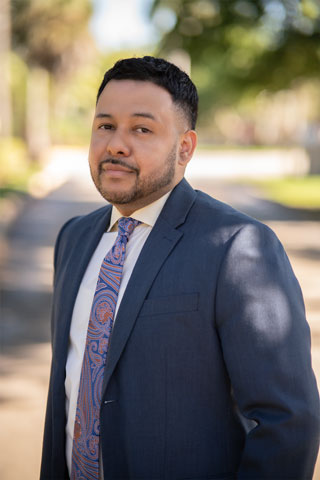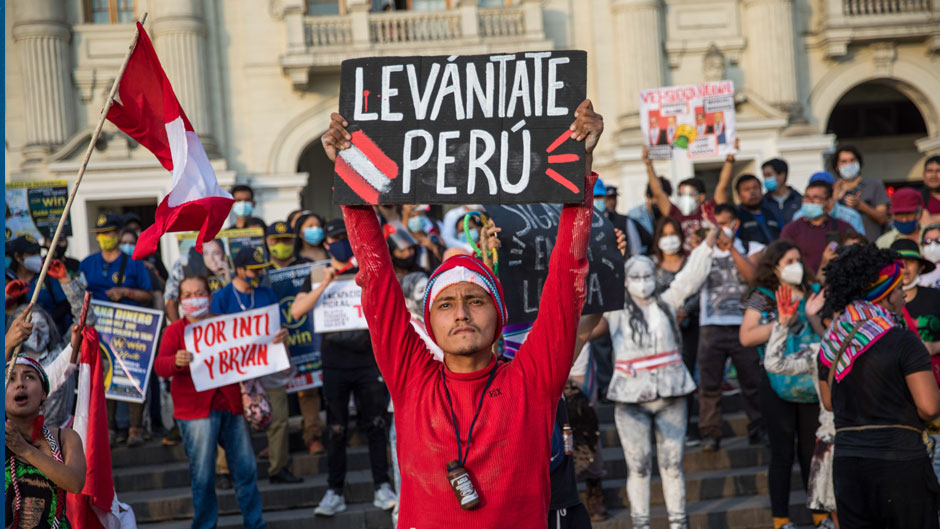Jonathan Sifuentes was surprised to arrive on the University of Miami campus last year and find no student organization that celebrated his deep-seeded appreciation of Peruvian culture. So together with a few friends, and while pursuing his finance degree, Sifuentes set about satisfying the University’s requirements to create one.
The Asociación de Estudiantes Peruanos was officially chartered in April 2020 and joins a host of other student-led organizations—from the African Students Union to Unión Venezolana—that aim to promote unity, foster ethnic pride, and honor cultural heritage.
“We all see the world through a tinted lens based on our culture, life experiences, and self-realization—and my culture is heavily rooted in Peru,” said Sifuentes, who grew up in Miami, but traveled often during his childhood and teen years to visit the homeland of both his parents and many relatives.

Yet in recent weeks, as Peru has spiraled into political chaos amid a revolving door of presidents, heightened tension, and increasing protests—led in large part by students—the organization has adopted a more advocacy-oriented stance.
The group that started with Sifuentes and three friends has mushroomed to 70 students, and it recently held a virtual roundtable that focused on the situation. The event was well-attended and included Peruvian students from across the country, he said.
The experience motivated him to expand the group’s reach nationally. He is also seeking guidance from the University’s School of Law to understand how to set up a nonprofit to expand their cause.
“What’s come out of our participation has been an increased sense of unity in our community, particularly students, because those that are marching in Peru are primarily students,” he said.
On Nov. 9, Peruvian President Martin Vizcarra was ousted after an impeachment trial on corruption charges and replaced by Manuel Merino, the head of the legislative body. One of the interim president’s first moves was to seek to eliminate higher education benefits via the Superintendencia Nacional de Educación Superior Universitaria, setting off a wave of student protests. Police moved to stifle the unrest and several students were killed in the police crackdown, 91 injured, and 41 disappeared, according to Amnesty International. Within a week, Merino had resigned giving way for the fifth Peruvian president in five years.
Adding to the unrest, the South American country has been especially hard hit by the pandemic—Peru has suffered one of the worst outbreaks in a region decimated by the coronavirus and associated economic collapse.
Sifuentes said that he remains in communication, mostly via social media, with several of his cousins who are in Peru and participating in the protests. The Asociación has attempted to deliver personal protective equipment and other support to the protesters.
Engineer Francisco Sagasti, who was named interim president, inspired hope at the group’s virtual roundtable. He was depicted as someone capable of returning a sense of stability while the country looks ahead to elections in the spring.
“We’re very concerned with what’s going on because everyone in Peru, including myself who has dual citizenship, are waiting for the elections next year,” said Sifuentes, adding that he’s eager to vote for the first time.
"Peru’s economy is among the fastest-growing in the region, and the country has developed its infrastructure competitiveness and implemented a broad anti-corruption plan," he added. "We can’t allow a lack of political integrity to compromise this progress."
For now, he’s looking forward to graduating next spring and is focused on identifying a new set of student leaders who will support a smooth transition for the organization next year.
The group is open to all. Interested in learning more? Visit Asociacion de Estudiantes Peruanos.

